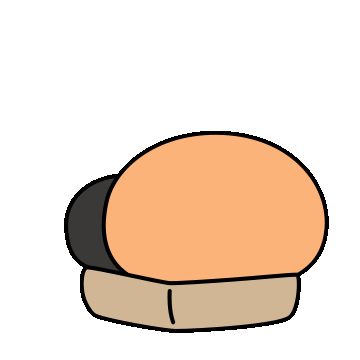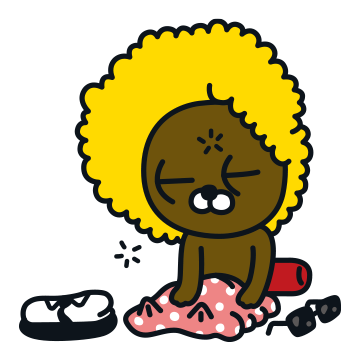
11 Practical Greetings in Korean
- 안녕하세요 (annyeonghaseyo) Hello
- 안녕히 계세요 (annyeonghi gyeseyo) Goodbye(when leaving)
- 안녕히 가세요 (annyeonghi gaseyo) Goodbye(when someone else is leaving)
- 식사하셨어요?(sig-sa-ha-syeo-sseo-yo?) Did you have a meal?
- 뭐 해요? (mwo haeyo?) What's up/What are you doing?
- 내일 봐요 (naeil bwayo) See you tomorrow
- 이따 봐요(itta bwayo) See you later
- 좋은 하루 되세요 (joeun haru doeseyo) Have a good day
- 잘 지내셨어요? (jal ji-nae-shyeo-sseo-yo?) How have you been?
- 잘 잤어요? (Jal-ja-sseo-yo?) Did you sleep well? (>Good morning)
- 잘자요 (jaljayo) Goodnight

1. 안녕하세요 (annyeonghaseyo)
Hello This is the most common way to say hello in Korean. It can be used in any situation, whether formal or informal. It's literal meaning is close to "Are you doing good?".
'안녕'(annyeong)
The literal translation of "안녕" is "peace" or "safety". So when you say "안녕" to someone, you're wishing them peace and safety. In a way, it's similar to saying "take care" in English.

2. 안녕히 계세요 (annyeonghi gyeseyo)
Goodbye (when leaving) This is a formal way to say goodbye when you're leaving. It's typically used in a work or business setting. It's literal meaning is "stay(계세요) well(안녕히)".

3. 안녕히 가세요 (annyeonghi gaseyo)
Goodbye (when someone else is leaving) This is a polite way to say goodbye to someone who is leaving. It can be used in any situation, but it's often used when someone is leaving your home or workplace. It's literal meaning is "go(가세요) well(안녕히)".

4. 식사하셨어요?(sig-sa-ha-syeo-sseo-yo?)
Did you have a meal? Asking about if you had meal or not is a common way of greeting in Korea, more likely, AFTER breakfast/ lunch/ dinner time. You can simply answer as yes(네, ne) or not yet(아직이요, ah-jik-ee-yo). If someone ask so BEFORE meal time, it could mean they want to eat together or want to finish the meeting/conversation soon.

5. 뭐 해요? (mwo haeyo?)
What's up?/What are you doing? This is a more casual way to ask someone what they're up to. It's commonly used between friends. The word "뭐" (mwo) means "what" and "해요?" (haeyo?) is the polite form of the verb "하다" (hada), which means "to do".

6. 내일 봐요 (naeil bwayo)
See you tomorrow This is a casual and friendly way to say goodbye when you know you'll be seeing the person again the following day. The word "내일" (naeil) means "tomorrow" and "봐요" (bwayo) is a casual form of the verb "보다" (boda), which means "to see".

7. 이따 봐요(itta bwayo)
See you later "이따 봐요" (idda bwayo) is a casual and friendly Korean phrase that means "see you later" or "talk to you later". It is derived from the words "이따(가)" (idda(ga)) which means "later" and "봐요" (bwayo) which is a casual form of the verb "보다" (boda), meaning "to see".

8. 좋은 하루 되세요 (joeun haru doeseyo)
Have a good day This is a polite way to wish someone a good day. It can be used in any situation. The word "좋은" (joeun) means "good" or "pleasant" and "하루" (haru) means "day". The verb "되세요" (doeseyo) is a polite form of the verb "되다" (doeda), which means "to become".

9. 잘 지내셨어요? (jal ji-nae-shyeo-sseo-yo?)
How have you been? This is a polite and formal way to ask someone how they've been doing. It's often used when you haven't seen someone in a while. The word "잘" (jal) means "well" or "good", "지내셨어요?" (jinaesyeosseoyo?) is the polite form of the verb "지내다" (jinaeda), which means "to live" or "to spend time".

10. 잘 잤어요? (jal-ja-sseo-yo?)
Did you sleep well? (> Good morning) "Good morning" is a little English-ish morning greeting. When Koreans first see a person right after one's night sleep, asking like "Did you sleep well?" is more common. The word "잘"(jal) means "well" or "good", "잤어요?"(ja-sseo-yo?) is past tense of the verb "자다"(jada), which means "to sleep". Do you want to say "Good morning" at work? The most normal expression "안녕하세요"(Hello) can be used instead.

11. 잘자요 (jaljayo)
Goodnight This is a common way to say goodnight. It can be used in any situation, formal or informal. The word "잘" (jal) means "well" or "good" and "자요" (jayo) is a casual form of the verb "자다" (jada), which means "to sleep".
Audio files were created by CLOVA Dubbing 's AI voice.
(C) CLOVA Dubbing의 AI 보이스로 제작하였습니다.
'Korean Language' 카테고리의 다른 글
| Unlocking Korean Sentence Structure: A Comprehensive Guide to Order (2) | 2023.11.16 |
|---|---|
| Korean Keyboard Installation & Use | Confusing point (0) | 2023.11.12 |
| The Best TWO Ways to Say Goodbye in Korean Language (0) | 2022.12.08 |
| Foreigners' mistakes in saying YOU in Korean (0) | 2022.08.25 |
| Eat Here or To Go in Korean | Most Common Korean Phrases (1) | 2022.07.29 |


댓글